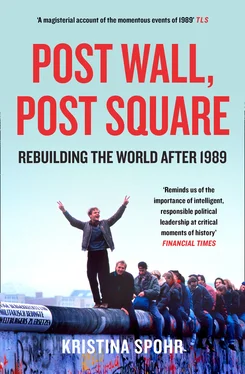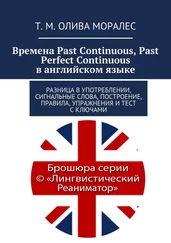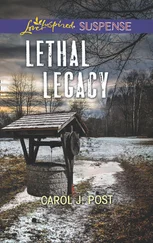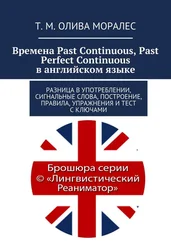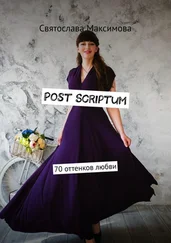The pre-summit bickering in Europe did not faze Bush. He knew that Kohl’s aim was ‘a strong NATO’ and that the chancellor had ‘linked his political existence to this goal’.[103] But the prognostications before the summit were distinctly bleak. ‘Bush Arrives for Talks With a Divided NATO’, the New York Times headlined on 29 May. The paper claimed that Bonn’s insistence on reducing the threat of SNFs to German territory raised fears in Washington, London and Paris of nothing less than the ‘denuclearisation’ of NATO’s central front. Such was the gulf, the newspaper noted, that no communiqué had been agreed in advance, which meant that NATO’s sixteen leaders would ‘have to thrash it out themselves’ at the summit. One NATO delegate confessed, ‘I honestly don’t know if a compromise is possible.’[104]
The president, however, had something up his sleeve when he arrived in Brussels. He presented his allies with a radical arms-reduction proposal not on SNFs but on conventional forces in Europe. This had not been easy to hammer out in Washington but fear of an alliance crisis in Brussels enabled Bush to bang heads together. What the president dubbed his ‘conventional parity initiative’ of 275,000 troops on each side would mean the withdrawal of about 30,000 Americans from Western Europe and about 325,000 Soviet soldiers from Eastern Europe. This was to be agreed between the superpowers within six to twelve months. Bush’s initiative was intended to probe Gorbachev’s longer-term readiness to accept disproportionate cuts that would eliminate the Red Army superiority in Eastern Europe on which Soviet domination of their satellite states had always depended. But more immediately, according to the New York Times , it was meant to ‘bring about a dramatic shift in the summit agenda’, thereby ‘swamping the missile discussion’. And this indeed proved to be the case. After nine hours of intense debate the allies accepted Bush’s proposals on cuts to conventional forces in Europe and especially his accelerated timetable. In return, the United States committed itself to ‘enter into negotiations to achieve a partial reduction of American and Soviet land-based nuclear missile forces’ as soon as the implementation of a conventional-arms accord was ‘under way’. This deal kept the Genscherites happy because of the prospect of rapid SNF negotiations, while Thatcher and Mitterrand – representing the two European nuclear powers – were gratified that there had been no further erosion of the principles of NATO’s nuclear deterrence per se. And it also suited Bush: keen to lower the conventional-warfare threat in Europe, he had been adamant that on the issue of nukes there should be ‘no third zero’.[105]
So the NATO summit that had seemed so precarious ended up as a resounding success. ‘An almost euphoric atmosphere’ surrounded the final press conference. Kohl declared ebulliently that he now perceived ‘a historic chance’ for ‘realistic and significant’ progress on arms control. He could not resist poking fun at his bête noire, Thatcher, who, he said, had come to Brussels taking a very hard line against any SNF negotiations and fiercely opposing concessions to the Germans. ‘Margaret Thatcher stood up for her interests, in her temperamental way,’ the chancellor remarked. ‘We have different temperaments. She is a woman and I’m not.’[106]
The remarkably harmonious outcome of the Brussels meeting – ‘we were all winners’, proclaimed Kohl[107] – was a big boost for NATO at forty. Indeed, he felt it was the ‘best kind of a birthday present’ the Alliance could have.[108] But it was also a huge boon for Bush, who had been under attack at home for failing to give leadership to the Alliance and for surrendering the diplomatic initiative to Gorbachev. Now, however, with his compromise package he had turned the entire situation around. As Scowcroft reflected with satisfaction, after this ‘fantastic result’ the press ‘never returned to their theme of the spring – that we had no vision and no strategy’.[109] Brussels, stated an American reporter, was ‘Bush’s hour’.[110]
As soon as the NATO press conference was over, the president travelled on to a sunlit evening in Bonn, basking in the warm glow of his success.[111] At a state dinner that night in a grand eighteenth-century restaurant, the president toasted another fortieth anniversary – that of the Federal Republic itself. ‘In 1989,’ he declared expansively, ‘we are nearer our goals of peace and European reconciliation than at any time since the founding of NATO and the Federal Republic.’ He added: ‘I don’t believe German–American relations have ever been better.’[112]
The following morning, 31 May, the Bush–Kohl caravan sailed on down the Rhine to the picture-book city of Mainz, capital of the Rhineland-Palatinate, Kohl’s home state.[113] ‘The United States and the Federal Republic have always been firm friends and allies,’ the president announced, ‘but today we share an added role: partners in leadership.’[114]
This was a striking phrase, testimony to the maturation of the American–West German relationship over the previous forty years – made ever sharper by the downgrading at the summit of Thatcher and by implication of London’s ‘special relationship’. To speak about Bonn as Washington’s ‘partner in leadership’ definitely stuck in her gullet: as she sadly admitted, it ‘confirmed the way American thinking about Europe was going’.[115]
Whereas Thatcher fixated on the partnership aspect of what Bush was saying, in his Mainz speech the president focused much more on what it meant to lead. ‘Leadership’, he declared, ‘has a constant companion: responsibility. And our responsibility is to look ahead and grasp the promise of the future … For forty years, the seeds of democracy in Eastern Europe lay dormant, buried under the frozen tundra of the Cold War … But the passion for freedom cannot be denied forever. The world has waited long enough. The time is right. Let Europe be whole and free … Let Berlin be next – let Berlin be next!’[116]
Two years before, Bush’s predecessor Ronald Reagan had stood before the Brandenburg Gate and called on the Soviet leader, ‘Mr Gorbachev, tear down this wall.’[117] Now in June 1989 a new US president was throwing down the gauntlet once again, mounting a new propaganda offensive against the charismatic Soviet leader. ‘Let Berlin be next’ was in one way headline-grabbing rhetoric, but it revealed that the administration was already beginning to grapple with the issue of German unification. As Bush said in his Mainz speech, ‘the frontier of barbed wire and minefields between Hungary and Austria is being removed, foot by foot, mile by mile. Just as the barriers are coming down in Hungary, so must they fall throughout all of Eastern Europe.’ Nowhere was the East–West divide starker than in Berlin. ‘There this brutal wall cuts neighbour from neighbour, brother from brother. And that wall stands as a monument to the failure of communism. It must come down.’
Despite his emphasis on Germany, Bush’s vision remained much broader. The will for freedom and democracy, he insisted yet again, was a truly global phenomenon. ‘This one idea is sweeping across Eurasia. This one idea is why the communist world, from Budapest to Beijing, is in ferment.’[118] By June 1989, Hungary was undoubtedly on the move but here change was occurring peacefully. On the other side of the world, however, the forces of democratic protest and communist oppression collided violently and with dramatic global consequences in China’s Forbidden City.
*
On 15 May, just before noon, Mikhail Gorbachev landed at Beijing’s airport to begin a historic four-day trip to China. Descending the steps of his blue-and-white Aeroflot jet, he was greeted by the Chinese president Yang Shangkun. The two men then walked past an honour guard of several hundred Chinese troops in olive-green uniforms and white gloves. A twenty-one-gun salute boomed in the background.
Читать дальше
